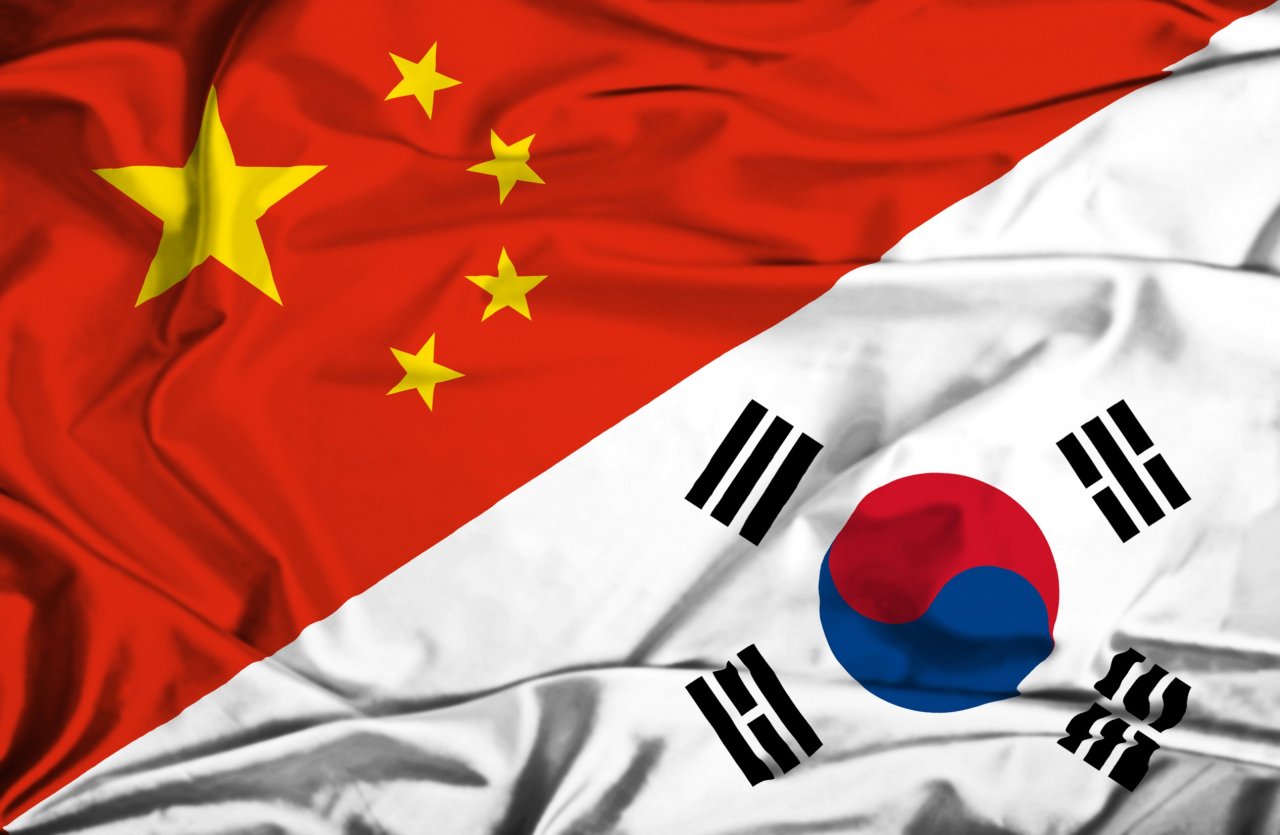
As China appears to relay stronger words to express its discomfort against Seoul’s diplomacy plans largely aligning with the United States, eyes are on how the Yoon Suk-yeol administration will navigate its way through the US-China rivalry.
The Chinese Foreign Ministry on Wednesday demanded the Yoon administration, which was inaugurated in May, to up hold the previous government’s China policy of the so-called “Three Nos” -- no additional deployment of the US-made Terminal High Altitude Area Defense anti-missile system in Korea; no participation in a US-led missile defense network; and no involvement in a trilateral military alliance with the US and Japan.
“We still remember vividly that in 2017, the ROK side made a solemn statement on the THAAD issue. It played a crucial role in boosting mutual trust and deepening cooperation between the two countries,” Chinese Foreign Ministry Spokesperson Zhao Lijian said, referring to South Korea by its official name, the Republic of Korea.
“A commitment made should be a commitment kept despite a change of government. When it comes to major sensitive issues concerning the security of its neighbors, the ROK side needs to continue to act prudently and find a fundamental solution to the issues.”
The Chinese spokesperson also explained that its opposition to South Korea deploying additional THAAD batteries is not targeted at South Korea, but “the US’ malicious intention to deliberately undermine China’s strategic security.”
Beijing addressed the Three Nos policy as a response to South Korean Foreign Minister Park Jin’s recent remark, which hinted that the South Korean government might withdraw from the previous administration’s China policy.
“The Three Nos policy is not something we had promised to China. As far as I know, (the government at the time) had only explained it as its position toward China,” Park said during the first interpellation session of the Yoon administration at the National Assembly on Monday.
“(The Three Nos policy) is directly related to our sovereignty, and it should be us making decisions on our security. It would be hard to accept if China tells us to keep to the promise (of the Three Nos Policy),” Park added.
The Three Nos policy was floated by the then-incumbent Moon Jae-in administration in October 2017, as it had sought to mend ties with China after South Korea decided to deploy the American anti-ballistic missile system on its soil in 2016.
The government’s announcement of the Three Nos was not a policy agreed with another party, but just a measure that the Moon administration had pursued at the time.
China has also been very critical of South Korea possibly joining a US-led chip alliance dubbed “Chip 4.” The US has asked three global chip powerhouses -- South Korea, Japan and Taiwan -- to hold consultative meetings for securing a stable chip supply chain.
Saying it would be “commercial suicide” for South Korea to join the Chip 4, China warned that South Korea could potentially lose the Chinese market, which takes almost 60 percent of total exports of South Korean chips.
The Yoon administration has been showing strong intent to strengthen its alliance with Washington, and has joined a series of regional economic groupings led by the US.
Seoul joined the US-led Indo-Pacific Economic Framework as a founding member, and also took part in the Supply Chain Ministerial, a ministerial-level discussion hosted by top US officials -- both events that are largely seen as the US’ move to keep China in check.
The Yoon administration is also reviewing to normalize the operation of the THAAD system in Seongju, North Gyeongsang Province, and is also working to strengthen trilateral cooperation with the US and Japan.
Seoul maintains that its actions are not intended at countering China, and that it seeks to increase communication with the neighboring country.
South Korean Foreign Minister Park is expected to travel to China before Aug. 24, as the day marks the 30th anniversary of diplomatic ties between the two countries. Chinese Foreign Minister Wang Yi is also expected to visit Seoul within this year, according to the Foreign Ministry here.
By Jo He-rim (herim@heraldcorp.com)








![[Graphic News] More Koreans say they plan long-distance trips this year](http://res.heraldm.com/phpwas/restmb_idxmake.php?idx=644&simg=/content/image/2024/04/17/20240417050828_0.gif&u=)
![[KH Explains] Hyundai's full hybrid edge to pay off amid slow transition to pure EVs](http://res.heraldm.com/phpwas/restmb_idxmake.php?idx=644&simg=/content/image/2024/04/18/20240418050645_0.jpg&u=20240419100350)






![[From the Scene] Monks, Buddhists hail return of remains of Buddhas](http://res.heraldm.com/phpwas/restmb_idxmake.php?idx=652&simg=/content/image/2024/04/19/20240419050617_0.jpg&u=20240419175937)

![[KH Explains] Hyundai's full hybrid edge to pay off amid slow transition to pure EVs](http://res.heraldm.com/phpwas/restmb_idxmake.php?idx=652&simg=/content/image/2024/04/18/20240418050645_0.jpg&u=20240419100350)

![[Today’s K-pop] Illit drops debut single remix](http://res.heraldm.com/phpwas/restmb_idxmake.php?idx=642&simg=/content/image/2024/04/19/20240419050612_0.jpg&u=)